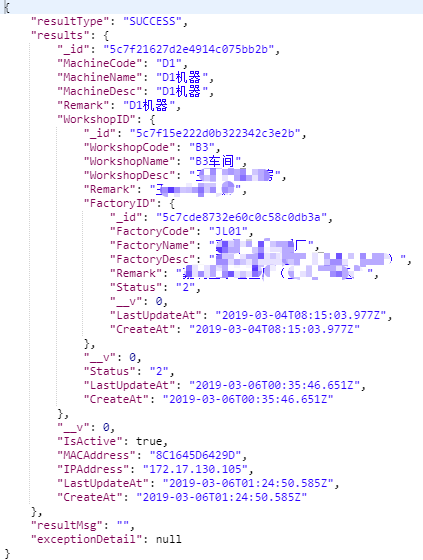参考地址:http://ronaldroe.com/populating-multiple-fields-and-levels-with-mongoose/
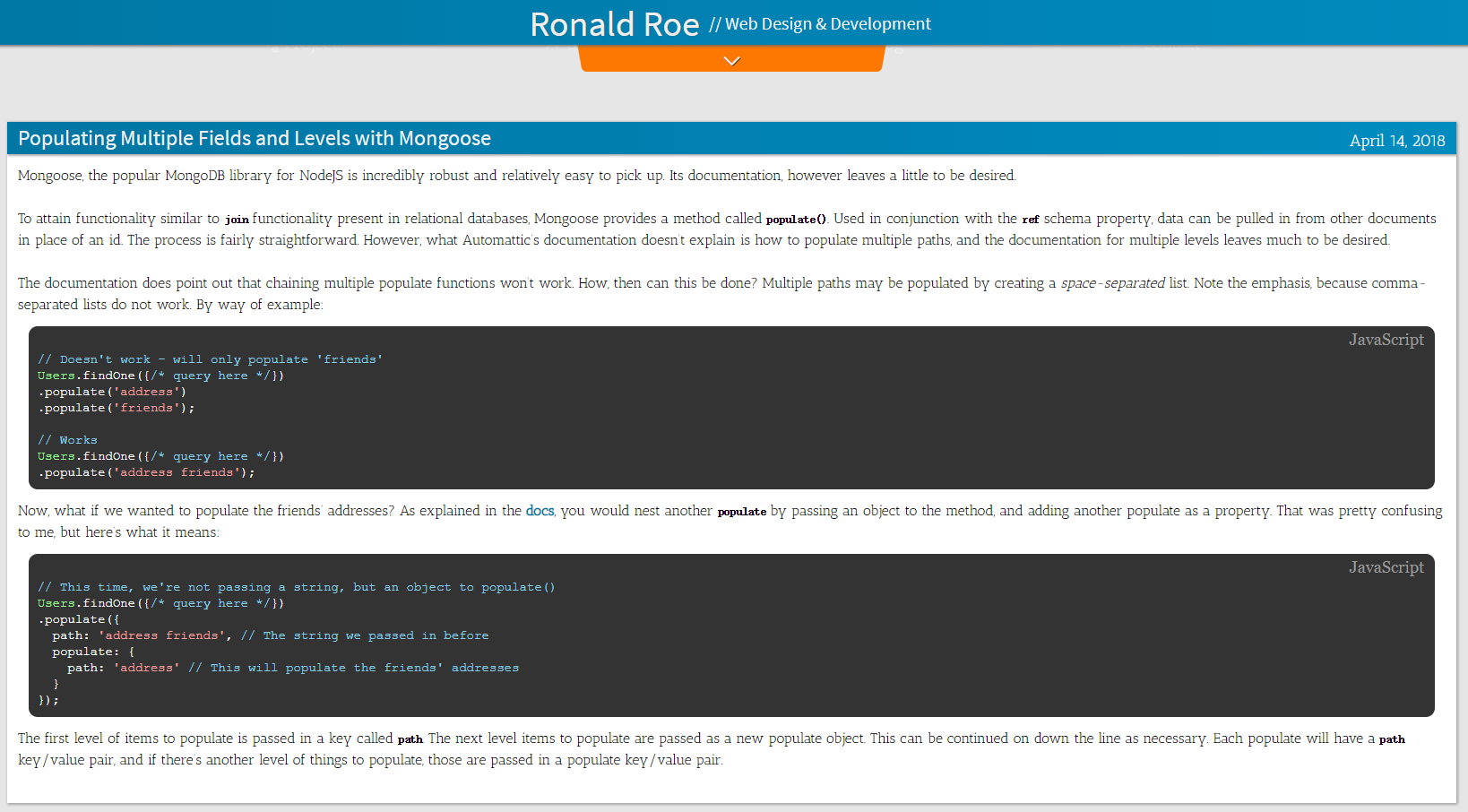
文字版本
Mongoose, the popular MongoDB library for NodeJS is incredibly robust and relatively easy to pick up. Its documentation, however leaves a little to be desired.
To attain functionality similar to join functionality present in relational databases, Mongoose provides a method called populate(). Used in conjunction with the ref schema property, data can be pulled in from other documents in place of an id. The process is fairly straightforward. However, what Automattic’s documentation doesn’t explain is how to populate multiple paths, and the documentation for multiple levels leaves much to be desired.
The documentation does point out that chaining multiple populate functions won’t work. How, then can this be done? Multiple paths may be populated by creating a space-separated list. Note the emphasis, because comma-separated lists do not work. By way of example:
// Doesn't work - will only populate 'friends'
Users.findOne({/* query here */})
.populate('address')
.populate('friends');
// Works,多个关联字段
Users.findOne({/* query here */})
.populate('address friends');
Now, what if we wanted to populate the friends’ addresses? As explained in the docs, you would nest another populate by passing an object to the method, and adding another populate as a property. That was pretty confusing to me, but here’s what it means:
// This time, we're not passing a string, but an object to populate(),多层关联
Users.findOne({/* query here */})
.populate({
path: 'address friends', // The string we passed in before
populate: {
path: 'address' // This will populate the friends' addresses
}
});
The first level of items to populate is passed in a key called path. The next level items to populate are passed as a new populate object. This can be continued on down the line as necessary. Each populate will have a path key/value pair, and if there’s another level of things to populate, those are passed in a populate key/value pair.
需求是因为有三个模型,工厂、车间、机器,关联关系是
工厂=》车间=》机器
即一个工厂对应多个车间,一个车间对应多个机器
所以在设计模型时,设计成,工厂模型、车间模型、机器模型,并在车间模型中保存了工厂模型的ID,也在机器模型中保存了车间模型的ID
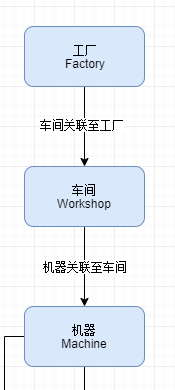
对应的模拟代码是
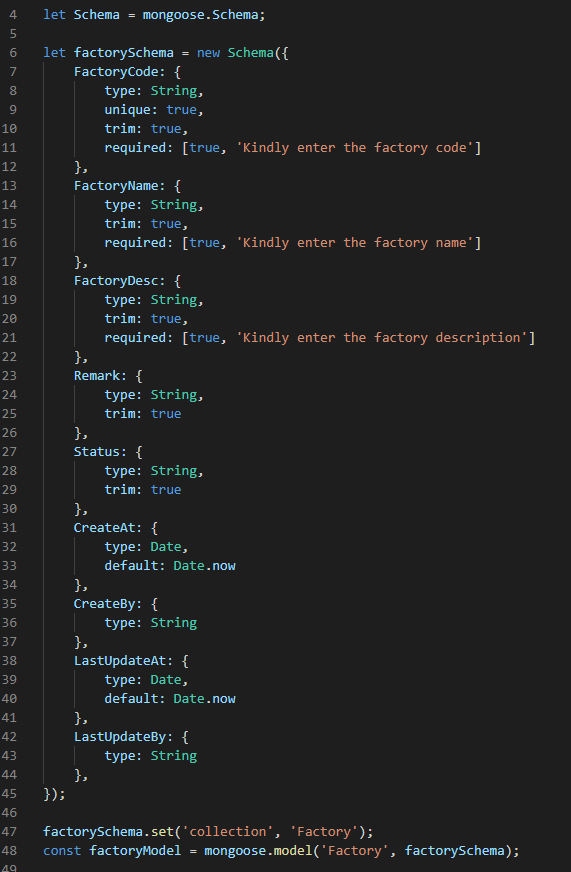
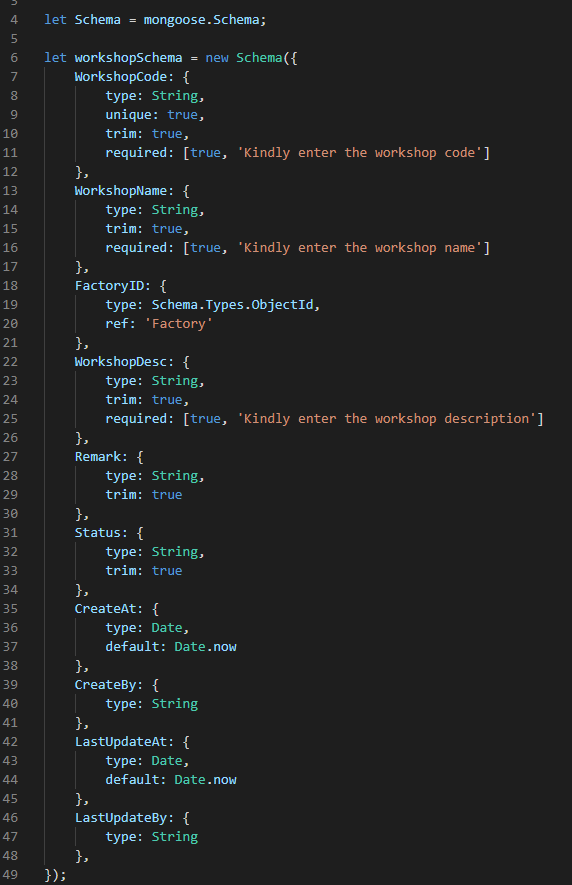
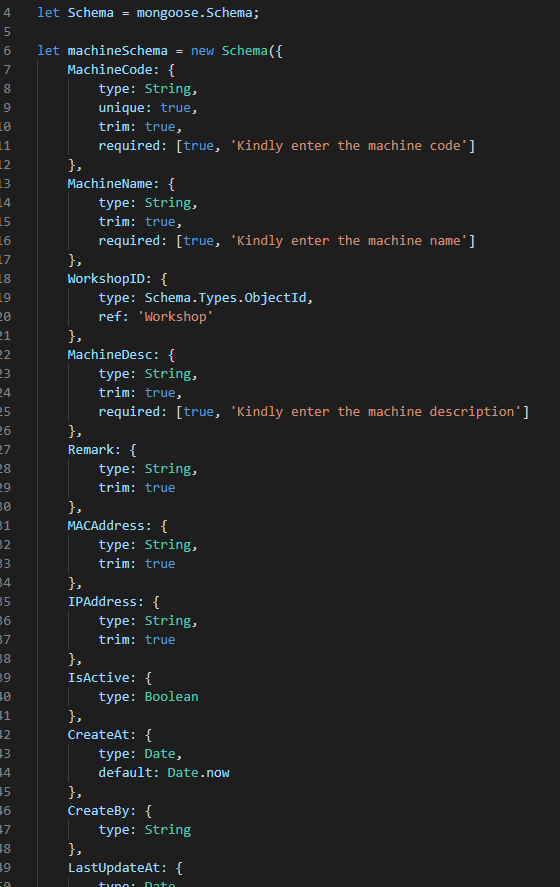
那么对应的查询中,工厂只需要查询自己即可

车间需要关联至工厂,那么需要增加populate方法,对关联数据进行查询

当查询机器时,需要查询更多了

最终查询出来的
